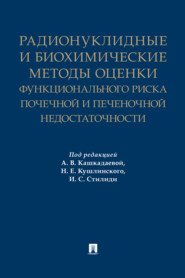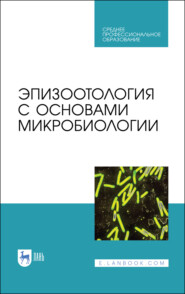По всем вопросам обращайтесь на: info@litportal.ru
(©) 2003-2024.
✖
Рефлексивные процессы и управление. Сборник материалов XI Международного симпозиума 16-17 октября 2017 г., Москва
Настройки чтения
Размер шрифта
Высота строк
Поля
Рефлексивные процессы и управление. Сборник материалов XI Международного симпозиума 16-17 октября 2017 г., Москва
Коллектив авторов
В последние десятилетия резко возрастают вызовы и угрозы сохранения и развития человека, человечества, биосферы и техносферы (цифровой реальности). Все более актуальным становится философско-методологическое осмысление проблематики управления и кибернетики. В философии науки происходят принципиальные изменения, связанные, согласно В. С. Степину, со становлением постнеклассического этапа ее развития. Не принимая во внимание этих изменений, мы рискуем упустить из виду принципиальные изменения в науках об управлении и в кибернетике. В этой связи в центр внимания XI международного симпозиума «Рефлексивные процессы и управление» поставлены актуальные проблемы рефлексивных исследований эволюции и перспективных направлений развития проблематики управления и становления кибернетики саморазвивающихся рефлексивно-активных сред (кибернетики третьего порядка – В. Е. Лепский). Большое внимание уделено и практическим аспектам реализации субъектно-ориентированного подхода к совершенствованию механизмов управления. Рассмотрены проблемы совершенствования системы распределенных ситуационных центров, проблемы сборки субъектов развития, создания системы информационно-аналитических центров Большой Евразии.
Сборник материалов симпозиума представляет интерес для специалистов из гуманитарных, естественнонаучных и технических областей знания, ориентированных на проблемы управления и развития, для студентов и аспирантов, а также для широкой аудитории управленцев-практиков.
Рефлексивные процессы и управление. Сборник материалов XI Международного симпозиума 16–17 октября 2017 г., Москва
Ответственный редактор В. Е. Лепский
Предисловие редактора
Россия пытается встать на путь выхода из глубокого кризиса, охватившего политическую, экономическую, социальную и духовную жизнь страны. Сложность проблемы определяется многочисленными факторами, среди которых важную роль играет кризис проблематики социального проектирования и управления. Прежде всего, это связано:
– с резким возрастанием динамичности социальных процессов;
– высоким темпом обновления знаний, который влечет быструю сменяемость социальных структур и институтов, воплощающих это знание, а также типов и способов коммуникаций;
– со снижением роли нормативного подхода, когда фактически нормой становится выход за пределы нормы;
– с «размыванием» устоявшихся традиций;
– с неадекватностью традиционных рыночных регуляторов, механизмов монетаризации, широкого использования манипулятивных технологий;
– с резким возрастанием сложности процессов личностной идентичности субъектов принятия управленческих решений.
Анализ не совсем удачных попыток перевести страну на курс развития позволяет утверждать, что главная проблема связана с бессубъектностью российского развития. С явной незаинтересованностью коррумпированных чиновников и олигархов в изменениях сложившейся очень удобной для них ситуации. Как следствие не удается сформировать пространство доверия в треугольнике «государство – общество – бизнес» столь необходимое для интенсивного развития.
В фокус внимания данного симпозиума была поставлена организация гармоничного развития субъектов в саморазвивающихся рефлексивно- активных средах. В них создаются условия для преодоления эгоизма, отказа от принципа максимизации прибыли, переходу к доминированию прямой демократии, к решению проблемы сложности за счет механизмов саморегулирования, к сборке субъектов развития. Важно отметить, что управление и развитие обеспечивается на основе гармонии иерархических, сетевых и средовых моделей.
Ориентация на саморазвивающиеся рефлексивно-активные среды позволила сформулировать проблему становления кибернетики третьего порядка, что обеспечивает приоритет российской науки в управленческой тематике.
В. Е. Лепский
Философско-методологические основания развития проблематики управления и кибернетики (роль и место рефлексивных процессов и технологий)
Vladimir Lepskiy (Institute of Philosophy Russian Academy of Sciences)
Third-order cybernetics
Abstract. To prove the connection between the evolution of cybernetics and the development of scientific rationality (classical, non- classical, post-non-classical) and to prove the relevance of the formation of post-non-classical cybernetics for self-developing reflexive-active environment (the third-order cybernetics).
Keywords: Cybernetics, third-order Cybernetics, Philosophy, Methodology, classical, non-classical, post-non-classical Rationality, self-developing reflexive-active Environments
Introduction
In recent decades Russian philosophy of science has recognized three stages in the development of science (classical, non-classical, and post-non-classical), which were proposed by V. S. Stepin (Stepin, 2005). If we ignore these changes, we risk losing sight of basic shifts in the scientific fields of control and in the evolution of cybernetics. Post-non-classical scientific rationality integrates all three types of scientific rationality.
The analysis of evolution of cybernetics and the evolution of scientific rationality make possible the hypothesis of their correlation. First-order cybernetics "cybernetics of observed systems" (Norbert Wiener) developed in classical scientific rationality. Second-order cybernetics "cybernetics of observing systems" (Foerster, 1974) developed in a non-classical scientific rationality. Post-non-classical scientific rationality can become a basis for formation of a post-non-classical "cybernetics of self developing" reflexive-active environments? which can be considered as the third-order of cybernetics.
Configurator of the philosophical and methodological cybernetics analysis
For analyzing the evolution of cybernetics we use the idea of the system configurator offered by V. A. Lefebvre (Lefebvre, 1967). The idea is that the researcher selects the most significant points of view on the object of research. The object is projected on several screens. The screens are connected with each other. The researcher can correlate various points of view on an object.
We will define structuring positions of the configurator in the context of the traditional points of view of scientific analysis:
– philosophical level (science philosophy – basic types of scientific rationality);
– methodological level (basic paradigms and objects of a research, methodology of scientific approach);
– theoretical level (the basic providing areas of knowledge);
– methodical level (basic methods, models, technologies).
The configurator for the analysis of the evolution of cybernetics is presented in Table 1 and Table 2.
Table 1. The generalized results of the philosophical and methodological analysis of the evolution of cybernetics (philosophical, methodological and theoretical levels).
Table 2. The generalized results of the philosophical and methodological analysis of the evolution of cybernetics (methodical level)
The post-non-classical scientific rationality integrates both classical, and non-classical rationality. As a result cybernetics must be considered as an uniform area of knowledge. In post-non-classical representation of cybernetics all levels are integrated into general cybernetics of the first, second and third order. This process is achieved through the system of ontologies, which establishes self-developing reflexive-active environments.
In the last decades the Russian interdisciplinary scientific society has shown considerable interest in the philosophical bases of cybernetics development (Novikov, 2016). In 2017 the WOSC initiative was essential in the process of bringing the worldwide scientific community together for joint discussions.
Post-non-classical scientific rationality: third-order cybernetics
Post-non-classical scientific rationality broadens the field of reflexion on scientific activity. It takes into consideration the correlation of the acquired knowledge about an object not only with the features of means and operations but also with valuable and target structures. At the same time the connection of inner-scientific goals with extra-scientific ones, social values and aims is explicated. Moreover, the problem of their correlation with the comprehension of valuable and target orientations of the scientific activities subject is also solved.
In the context of this rationality basic scientific approaches to cybernetics and control have to be focused on harmony causal (cause and effect) and teleologic (target determination) approaches.
In post-non-classical scientific rationality there is a transformation of philosophical constructivism. It becomes "softer". The emphasis is on communicative processes of the subjects forming reality, on the influence of these processes on restrictions of their freedom (Lektorski, 2001). Freedom is thought of not as control, but as establishment of an equal partnership with what is out of the person: with natural processes, with other persons, with the values of other cultures, with social processes. Such an approach assumes non-reduced variety, pluralism of different positions and points of view, cultural systems engaging with each other in dialogue and changing as a result of interaction. This new understanding of the person and the natural relation is the basis if not the ideal anthropocentrism, but the idea of joint evolution.
Self-developing systems are in the center of attention of post-non-classical scientific rationality (Stepin, 2003).The paradigm "subject – self-developing reflexive-active system (environment)" (Lepskiy, 2010) becomes a key paradigm of control and cybernetics. It is important to note that the environment is considered to be the meta-subject. As a result the paradigm can be presented as "subject – meta-subject".
A self-developing reflexive-active environment is a metasubject, which possesses invariant similar to the properties of subjects: purposefulness (activity), reflexivity, communicativeness, sociality, ability to develop, etc. Such an environment has integrity that essentially distinguishes it from networks. This is an interaction of active elements, organized in a special way. Active elements can be created on the basis of natural intelligence (the personality, group, etc.), on the basis of artificial intelligence (agents) and also on the basis of integration of natural and artificial intelligence.
The organization of interaction of active elements among themselves and with the environment in general is defined by the system of values, principles, ontologies (maintenance, support, development, designing, providing innovations), criteria (efficiency, safety, development, satisfaction) and also by the specialized subject-focused information platform (Lepskiy, 2010; 2015).
The idea of self-developing reflexive-active environments was created under the influence of the following inter-disciplinary ideas and concepts. Philosophy, sociology and psychology have given us the ideas of post-non-classical scientific rationality, which integrates concepts of various scientific schools (Stepin, 2005), ideas of noosphere (Vernadsky, 2007), the concept of the society as a social system (Luhmann, 1982), principles of the Russian psychology (Leontiev, 1978; Vygotsky, 1981; Rubinshteyn, 1997), studies of the Russian methodologists (Shchedrovitsky, 2002) and etc.
Cybernetics has given us an idea of second-order cybernetics by Heinz von Foerster (Foerster, 1974), Stafford Beer‘s models (Beer, 1981), W. R. Ashby principle of complexity in control (Ashby, 1956), the reflexive models of Vladimir Lefebvre (Lefebvre, 1967, 1982), a synthesis of representations of cybernetics and its development by Stuart Umpleby (Umpleby, 2014), ideas of Valentin Turchin about metasystem transition and concepts of the future of cybernetics (Turchin, 1977), etc.
The model of organization of self-developing reflexive-active environments, described in this abstract, will allow us to solve a number of current scientific and practical problems (Lepskiy, 1998, 2010; 2015). It will:
– support of processes of identification of the society (project identification gets the leading role);
– assemble of the subjects of development into metasubjects, help to consolidate state, business and society actors on the basis of shared interests, stimulate and support development of the civil society;
– improve mechanisms of democracy on the basis of convergence of direct and representative democracy;
Коллектив авторов
В последние десятилетия резко возрастают вызовы и угрозы сохранения и развития человека, человечества, биосферы и техносферы (цифровой реальности). Все более актуальным становится философско-методологическое осмысление проблематики управления и кибернетики. В философии науки происходят принципиальные изменения, связанные, согласно В. С. Степину, со становлением постнеклассического этапа ее развития. Не принимая во внимание этих изменений, мы рискуем упустить из виду принципиальные изменения в науках об управлении и в кибернетике. В этой связи в центр внимания XI международного симпозиума «Рефлексивные процессы и управление» поставлены актуальные проблемы рефлексивных исследований эволюции и перспективных направлений развития проблематики управления и становления кибернетики саморазвивающихся рефлексивно-активных сред (кибернетики третьего порядка – В. Е. Лепский). Большое внимание уделено и практическим аспектам реализации субъектно-ориентированного подхода к совершенствованию механизмов управления. Рассмотрены проблемы совершенствования системы распределенных ситуационных центров, проблемы сборки субъектов развития, создания системы информационно-аналитических центров Большой Евразии.
Сборник материалов симпозиума представляет интерес для специалистов из гуманитарных, естественнонаучных и технических областей знания, ориентированных на проблемы управления и развития, для студентов и аспирантов, а также для широкой аудитории управленцев-практиков.
Рефлексивные процессы и управление. Сборник материалов XI Международного симпозиума 16–17 октября 2017 г., Москва
Ответственный редактор В. Е. Лепский
Предисловие редактора
Россия пытается встать на путь выхода из глубокого кризиса, охватившего политическую, экономическую, социальную и духовную жизнь страны. Сложность проблемы определяется многочисленными факторами, среди которых важную роль играет кризис проблематики социального проектирования и управления. Прежде всего, это связано:
– с резким возрастанием динамичности социальных процессов;
– высоким темпом обновления знаний, который влечет быструю сменяемость социальных структур и институтов, воплощающих это знание, а также типов и способов коммуникаций;
– со снижением роли нормативного подхода, когда фактически нормой становится выход за пределы нормы;
– с «размыванием» устоявшихся традиций;
– с неадекватностью традиционных рыночных регуляторов, механизмов монетаризации, широкого использования манипулятивных технологий;
– с резким возрастанием сложности процессов личностной идентичности субъектов принятия управленческих решений.
Анализ не совсем удачных попыток перевести страну на курс развития позволяет утверждать, что главная проблема связана с бессубъектностью российского развития. С явной незаинтересованностью коррумпированных чиновников и олигархов в изменениях сложившейся очень удобной для них ситуации. Как следствие не удается сформировать пространство доверия в треугольнике «государство – общество – бизнес» столь необходимое для интенсивного развития.
В фокус внимания данного симпозиума была поставлена организация гармоничного развития субъектов в саморазвивающихся рефлексивно- активных средах. В них создаются условия для преодоления эгоизма, отказа от принципа максимизации прибыли, переходу к доминированию прямой демократии, к решению проблемы сложности за счет механизмов саморегулирования, к сборке субъектов развития. Важно отметить, что управление и развитие обеспечивается на основе гармонии иерархических, сетевых и средовых моделей.
Ориентация на саморазвивающиеся рефлексивно-активные среды позволила сформулировать проблему становления кибернетики третьего порядка, что обеспечивает приоритет российской науки в управленческой тематике.
В. Е. Лепский
Философско-методологические основания развития проблематики управления и кибернетики (роль и место рефлексивных процессов и технологий)
Vladimir Lepskiy (Institute of Philosophy Russian Academy of Sciences)
Third-order cybernetics
Abstract. To prove the connection between the evolution of cybernetics and the development of scientific rationality (classical, non- classical, post-non-classical) and to prove the relevance of the formation of post-non-classical cybernetics for self-developing reflexive-active environment (the third-order cybernetics).
Keywords: Cybernetics, third-order Cybernetics, Philosophy, Methodology, classical, non-classical, post-non-classical Rationality, self-developing reflexive-active Environments
Introduction
In recent decades Russian philosophy of science has recognized three stages in the development of science (classical, non-classical, and post-non-classical), which were proposed by V. S. Stepin (Stepin, 2005). If we ignore these changes, we risk losing sight of basic shifts in the scientific fields of control and in the evolution of cybernetics. Post-non-classical scientific rationality integrates all three types of scientific rationality.
The analysis of evolution of cybernetics and the evolution of scientific rationality make possible the hypothesis of their correlation. First-order cybernetics "cybernetics of observed systems" (Norbert Wiener) developed in classical scientific rationality. Second-order cybernetics "cybernetics of observing systems" (Foerster, 1974) developed in a non-classical scientific rationality. Post-non-classical scientific rationality can become a basis for formation of a post-non-classical "cybernetics of self developing" reflexive-active environments? which can be considered as the third-order of cybernetics.
Configurator of the philosophical and methodological cybernetics analysis
For analyzing the evolution of cybernetics we use the idea of the system configurator offered by V. A. Lefebvre (Lefebvre, 1967). The idea is that the researcher selects the most significant points of view on the object of research. The object is projected on several screens. The screens are connected with each other. The researcher can correlate various points of view on an object.
We will define structuring positions of the configurator in the context of the traditional points of view of scientific analysis:
– philosophical level (science philosophy – basic types of scientific rationality);
– methodological level (basic paradigms and objects of a research, methodology of scientific approach);
– theoretical level (the basic providing areas of knowledge);
– methodical level (basic methods, models, technologies).
The configurator for the analysis of the evolution of cybernetics is presented in Table 1 and Table 2.
Table 1. The generalized results of the philosophical and methodological analysis of the evolution of cybernetics (philosophical, methodological and theoretical levels).
Table 2. The generalized results of the philosophical and methodological analysis of the evolution of cybernetics (methodical level)
The post-non-classical scientific rationality integrates both classical, and non-classical rationality. As a result cybernetics must be considered as an uniform area of knowledge. In post-non-classical representation of cybernetics all levels are integrated into general cybernetics of the first, second and third order. This process is achieved through the system of ontologies, which establishes self-developing reflexive-active environments.
In the last decades the Russian interdisciplinary scientific society has shown considerable interest in the philosophical bases of cybernetics development (Novikov, 2016). In 2017 the WOSC initiative was essential in the process of bringing the worldwide scientific community together for joint discussions.
Post-non-classical scientific rationality: third-order cybernetics
Post-non-classical scientific rationality broadens the field of reflexion on scientific activity. It takes into consideration the correlation of the acquired knowledge about an object not only with the features of means and operations but also with valuable and target structures. At the same time the connection of inner-scientific goals with extra-scientific ones, social values and aims is explicated. Moreover, the problem of their correlation with the comprehension of valuable and target orientations of the scientific activities subject is also solved.
In the context of this rationality basic scientific approaches to cybernetics and control have to be focused on harmony causal (cause and effect) and teleologic (target determination) approaches.
In post-non-classical scientific rationality there is a transformation of philosophical constructivism. It becomes "softer". The emphasis is on communicative processes of the subjects forming reality, on the influence of these processes on restrictions of their freedom (Lektorski, 2001). Freedom is thought of not as control, but as establishment of an equal partnership with what is out of the person: with natural processes, with other persons, with the values of other cultures, with social processes. Such an approach assumes non-reduced variety, pluralism of different positions and points of view, cultural systems engaging with each other in dialogue and changing as a result of interaction. This new understanding of the person and the natural relation is the basis if not the ideal anthropocentrism, but the idea of joint evolution.
Self-developing systems are in the center of attention of post-non-classical scientific rationality (Stepin, 2003).The paradigm "subject – self-developing reflexive-active system (environment)" (Lepskiy, 2010) becomes a key paradigm of control and cybernetics. It is important to note that the environment is considered to be the meta-subject. As a result the paradigm can be presented as "subject – meta-subject".
A self-developing reflexive-active environment is a metasubject, which possesses invariant similar to the properties of subjects: purposefulness (activity), reflexivity, communicativeness, sociality, ability to develop, etc. Such an environment has integrity that essentially distinguishes it from networks. This is an interaction of active elements, organized in a special way. Active elements can be created on the basis of natural intelligence (the personality, group, etc.), on the basis of artificial intelligence (agents) and also on the basis of integration of natural and artificial intelligence.
The organization of interaction of active elements among themselves and with the environment in general is defined by the system of values, principles, ontologies (maintenance, support, development, designing, providing innovations), criteria (efficiency, safety, development, satisfaction) and also by the specialized subject-focused information platform (Lepskiy, 2010; 2015).
The idea of self-developing reflexive-active environments was created under the influence of the following inter-disciplinary ideas and concepts. Philosophy, sociology and psychology have given us the ideas of post-non-classical scientific rationality, which integrates concepts of various scientific schools (Stepin, 2005), ideas of noosphere (Vernadsky, 2007), the concept of the society as a social system (Luhmann, 1982), principles of the Russian psychology (Leontiev, 1978; Vygotsky, 1981; Rubinshteyn, 1997), studies of the Russian methodologists (Shchedrovitsky, 2002) and etc.
Cybernetics has given us an idea of second-order cybernetics by Heinz von Foerster (Foerster, 1974), Stafford Beer‘s models (Beer, 1981), W. R. Ashby principle of complexity in control (Ashby, 1956), the reflexive models of Vladimir Lefebvre (Lefebvre, 1967, 1982), a synthesis of representations of cybernetics and its development by Stuart Umpleby (Umpleby, 2014), ideas of Valentin Turchin about metasystem transition and concepts of the future of cybernetics (Turchin, 1977), etc.
The model of organization of self-developing reflexive-active environments, described in this abstract, will allow us to solve a number of current scientific and practical problems (Lepskiy, 1998, 2010; 2015). It will:
– support of processes of identification of the society (project identification gets the leading role);
– assemble of the subjects of development into metasubjects, help to consolidate state, business and society actors on the basis of shared interests, stimulate and support development of the civil society;
– improve mechanisms of democracy on the basis of convergence of direct and representative democracy;

















